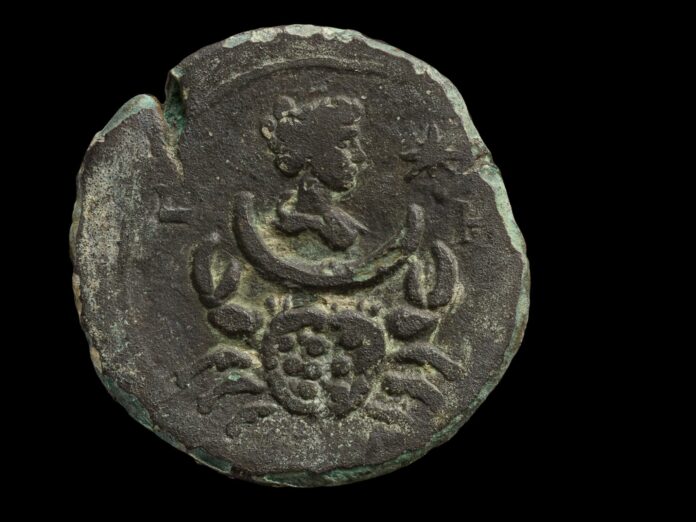A remarkable discovery has been made off the coast of Carmel in Haifa, Israel, where a rare and exceptionally well-preserved ancient Roman bronze coin has been unearthed. This 1,850-year-old coin, which features the Roman moon goddess Luna, offers a fascinating glimpse into the past. The find was reported by the Israel Antiquities Authority (IAA) on Monday and is considered a significant addition to the collection of ancient artifacts.
The Coin and Its Significance
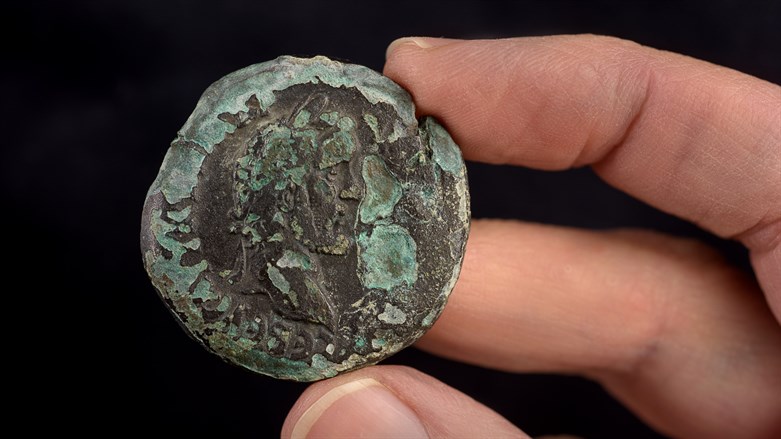
The bronze coin, struck in Alexandria, Egypt, during the reign of Emperor Antoninus Pius (138-161 CE), is notable for its detailed depiction of Luna, the Roman goddess of the moon. On the reverse side, the coin showcases Luna over the zodiacal sign of Cancer. The inscription on the coin reads ‘Year eight,’ which corresponds to the eighth year of Antoninus Pius’ reign, approximately 144/145 CE.
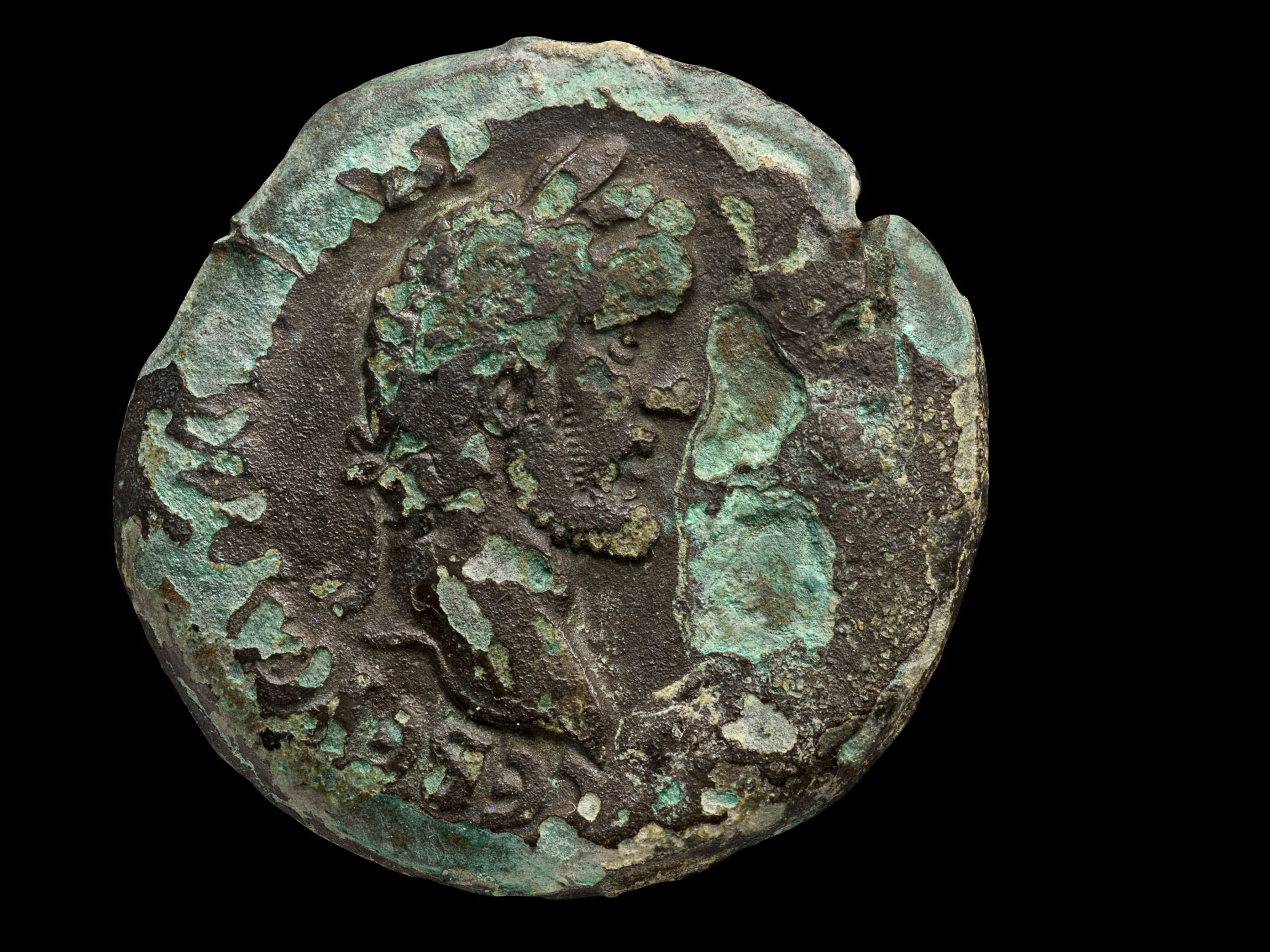
The discovery was made by the Marine Archaeology Unit of the Israel Antiquities Authority as part of a search aimed at protecting historical artifacts from coastal development. This coin is part of a series of thirteen coins, with twelve depicting various zodiac signs and one representing the entire zodiac wheel. The find is the first of its kind to be discovered off Israel’s coast.
Historical Context of Emperor Antoninus Pius
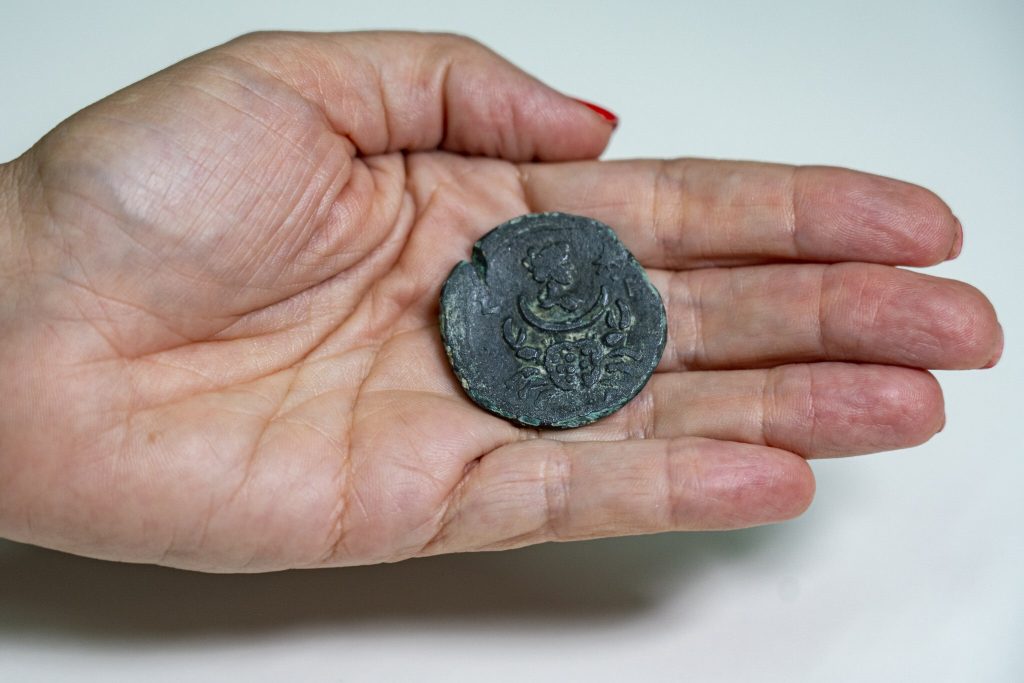
The reign of Emperor Antoninus Pius is often regarded as one of the most peaceful periods in Roman history, known as the Pax Romana or Roman Peace. During this time, the Roman Empire experienced relative stability and prosperity. Antoninus Pius, who was not a military figure and never engaged in warfare, focused on administrative and judicial reforms.
Under Antoninus’ rule, relations with the Jewish community improved significantly. Notably, the harsh decrees of Emperor Hadrian were revoked, allowing Jews to practice circumcision freely. This period of relative tranquility and reform marked a significant shift in the empire’s approach to its diverse populations.
The Impact of the Discovery
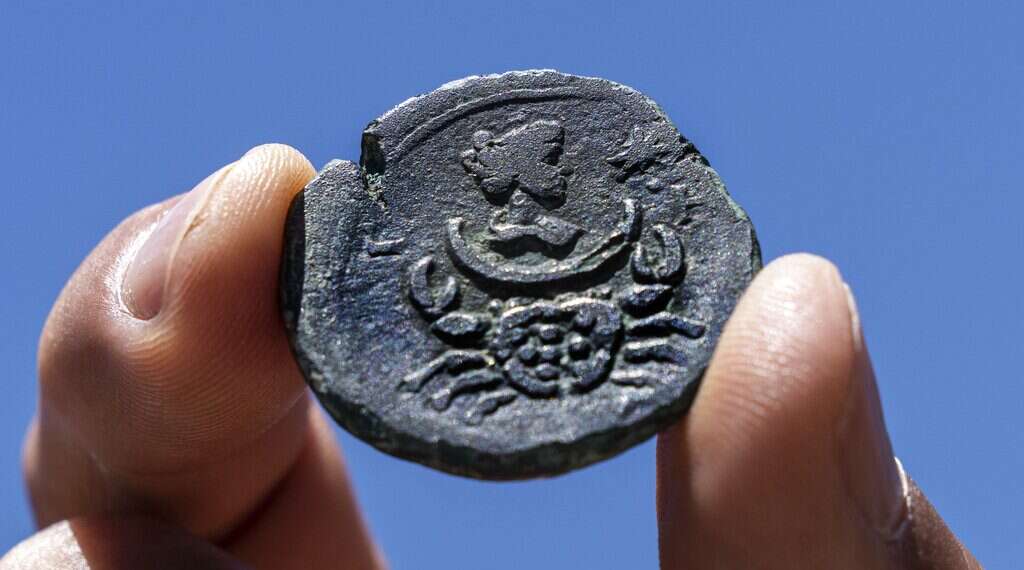
Jacob Sharvit, director of the Israel Antiquities Authority’s Maritime Archaeology Unit, highlighted the significance of the find. He noted that this discovery is unprecedented in Israel’s Mediterranean waters. “Israel’s Mediterranean shores and waters have yielded many archaeological sites and finds that attest to connections in antiquity between Mediterranean ports and the countries along it,” Sharvit explained. He emphasized that such finds, which have been lost at sea for hundreds or thousands of years, are remarkably well-preserved and provide crucial insights into the historical connections of the region.
Conclusion
The discovery of the ancient Roman coin off the coast of Carmel is a testament to the rich and complex history of the Mediterranean region. This well-preserved artifact not only enriches our understanding of Roman coinage but also sheds light on the historical context of Emperor Antoninus Pius’ reign. As more such artifacts are discovered, they continue to piece together the intricate puzzle of our past, offering invaluable insights into ancient civilizations and their connections.
